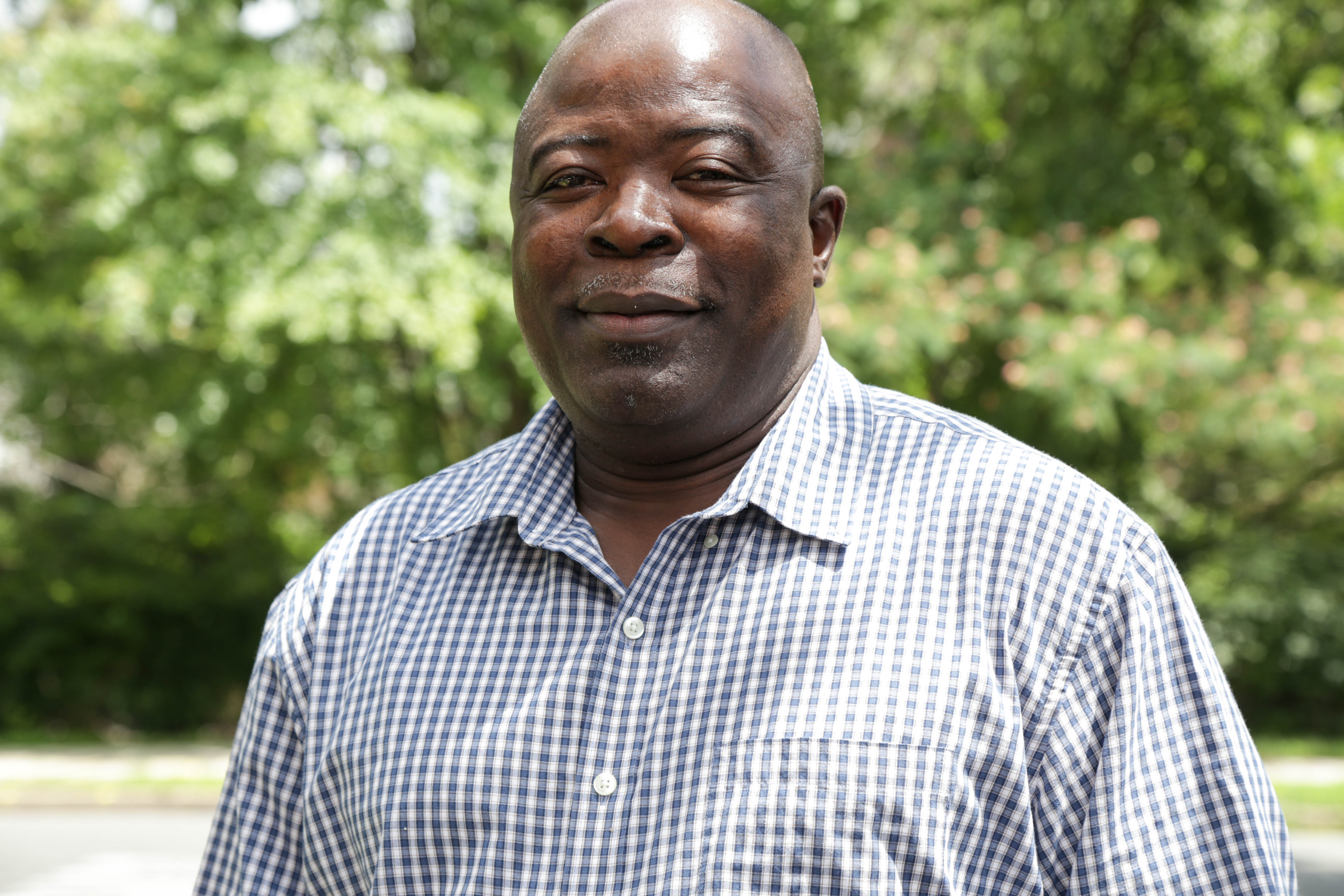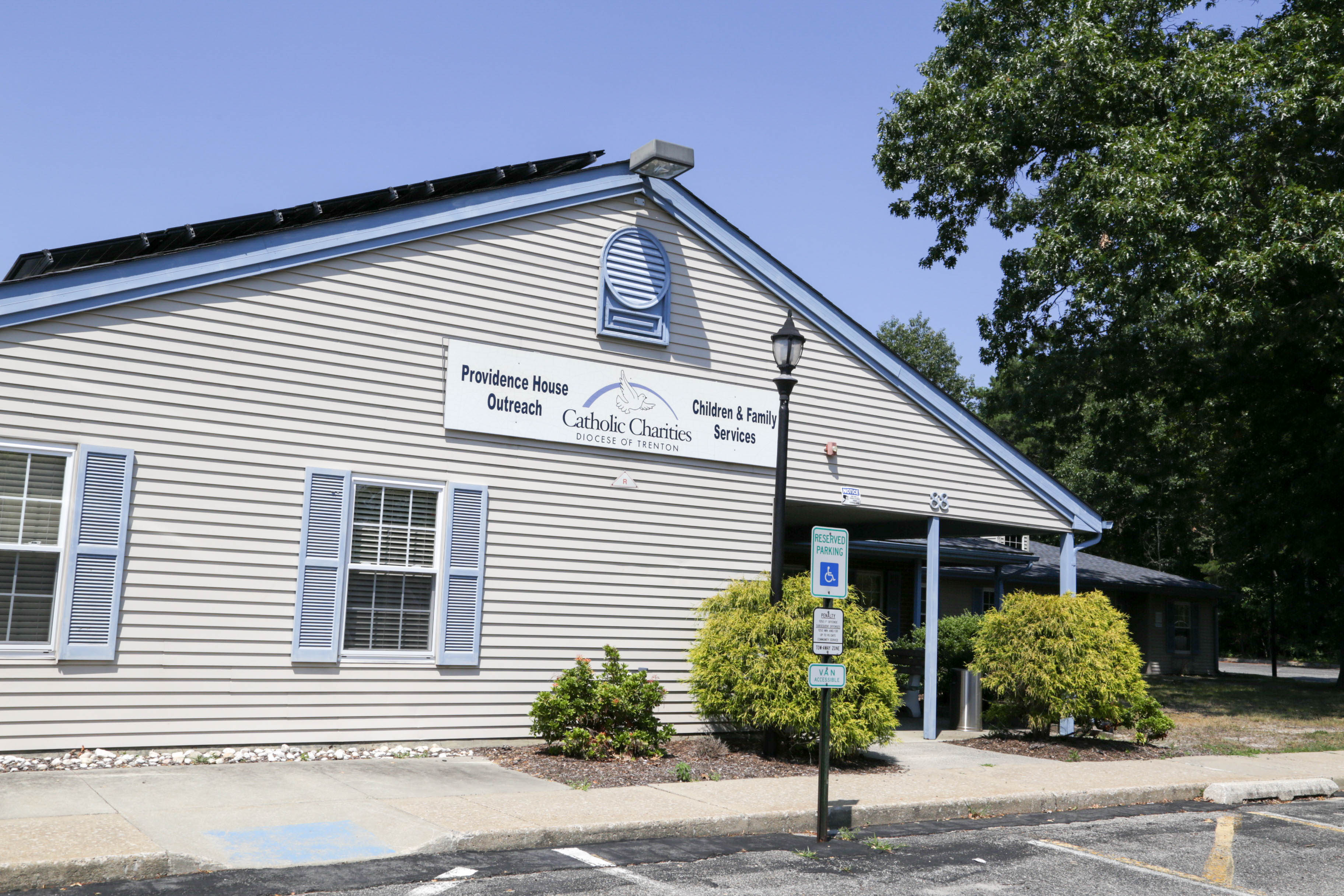Government shutdown threatens homelessness, domestic violence work at Catholic Charities
The government shutdown has impacted a housing program run by Catholic Charities, Diocese of Trenton, leaving 24 homeless or recently homeless adults with an uncertain future.
The federal funding for Catholic Charities’ Rapid Rehousing program in Mercer County would have been renewed this month – but wasn’t because of the shutdown, which is now in its 24th day. The emergency-housing program serves 17 single homeless adults, with another seven on the waiting list.
Catholic Charities pays security deposits and rent for people in the program, while helping them secure employment, with the goal of them transitioning to self-sufficiency. The program is a nationally recognized model that has proven to be extremely effective in helping people exit homelessness for good.
 “Traumatic for them”
“Traumatic for them”
The program will not have the funding required to continue, as of Feb. 1. That means the 17 people now enrolled must come up with full rental payments for February on their own, while those on the waiting list will remain on hold.
“Of course, we will provide referrals to our community partners that possess homeless-prevention dollars to assist these individuals temporarily until the grant funding is awarded,” said Arnold Valentin (pictured, left), service area director of Catholic Charities’ Community Services, which oversees the Rapid Rehousing program.
 Mosudi Idowu, Rapid Rehousing director (pictured, right), agreed: “These were homeless people who we can finally house. For us to tell them: ‘we cannot help you anymore,’ that is traumatic for them. They are scared. That fear of becoming homeless again never goes away for some of them. But we are not going to abandon them. We’re going to reach out to other providers to help in the short-term.”
Mosudi Idowu, Rapid Rehousing director (pictured, right), agreed: “These were homeless people who we can finally house. For us to tell them: ‘we cannot help you anymore,’ that is traumatic for them. They are scared. That fear of becoming homeless again never goes away for some of them. But we are not going to abandon them. We’re going to reach out to other providers to help in the short-term.”
Relying on other community providers is an imperfect solution, though, because they typically also have wait lists, Valentin and Idowu agreed.
A potentially wider impact
And perhaps most importantly, no one knows how long the government shutdown will last.
“If this continues, this will affect our staffing too,” Idowu said. “It’s going to affect the bottom line of every program that is federally funded.”
Indeed, domestic violence programs may also be impacted.
The Violence Against Women Act (VAWA) wasn’t reauthorized before the shutdown, so it expired. Many domestic violence programs receive funding from the U.S. Department of Justice’s Office of Violence Against Women (OVW) under VAWA. Because of the shutdown, that office is not processing payment requests. The longer the shutdown persists, providers who rely on federal funds may find it challenging to continue offering domestic violence crisis services, treatment and education.
Catholic Charities offers domestic violence services at its Providence Houses in Burlington and Ocean counties, including specialized services for older adults in domestic crisis in Ocean County (pictured, right).
“We have multiple funding streams, so it’s unclear how the government shutdown, if it continues, will affect us,” said Mary Pettrow, associate service area director of Providence House. “But we are monitoring the situation and remain hopeful for a quick resolution so that services designed to expand our reach into our communities to prevent domestic abuse and enhance life-saving responses are not negatively impacted. Providence House will continue to stand ready to offer free and confidential 24-hour crisis services to domestic violence victims and their children.”
End the shutdown
The answer is a swift end to the shutdown, Catholic Charities staffers agree.
 “It’s unfortunate, but we are already witnessing the impact of this federal shutdown for people in poverty,” said Marlene Laó-Collins, executive director (pictured, left). “Catholic Charities works with vulnerable people to assist them in moving out of homelessness and into employment, so that they can stabilize their lives. The shutdown is disruptive to their progress and can lead them to experience significant setbacks. Closing federal offices and suspending important programs limit access, especially for people in poverty, to basic necessities such as food, housing, health care and jobs, and keep them from truly living with dignity. This is certainly not in the interest of the common good.”
“It’s unfortunate, but we are already witnessing the impact of this federal shutdown for people in poverty,” said Marlene Laó-Collins, executive director (pictured, left). “Catholic Charities works with vulnerable people to assist them in moving out of homelessness and into employment, so that they can stabilize their lives. The shutdown is disruptive to their progress and can lead them to experience significant setbacks. Closing federal offices and suspending important programs limit access, especially for people in poverty, to basic necessities such as food, housing, health care and jobs, and keep them from truly living with dignity. This is certainly not in the interest of the common good.”
Because of the lapse in funding, donations of cash or household items are especially needed and appreciated now, Idowu said.
“We just pray for the shutdown to be over,” Idowu added.
A sorely needed program
New Jersey consistently ranks among the states with the highest housing costs. Consequently, Rapid Rehousing is one of Catholic Charities’ most in-demand programs.
It’s also a program that requires time to achieve lasting success. Clients typically remain in Rapid Rehousing for months in order to ensure sustainability and eliminate recidivism.
Most program clients are under-employed, so it takes time for them to build their savings and achieve any financial security, Idowu said. Catholic Charities staff teaches clients about budgeting and money management to ensure long-range stability and success.
The government shutdown is affecting only the Rapid Rehousing program that serves single homeless adults in Mercer County. Catholic Charities’ Rapid Rehousing programs that serve families in Mercer County, and single adults and families in Burlington County are unaffected by the shutdown and are continuing to accept applications, Idowu added.
Impact on SNAP
The shutdown also prompted the New Jersey Department of Human Services (DHS) to issue February benefits early to Supplemental Nutrition Assistance Program (SNAP) recipients.
 SNAP is a federal program administered by DHS that offers nutrition assistance to individuals and families with low incomes. New Jersey has about 730,000 SNAP recipients. Read more details on that here.
SNAP is a federal program administered by DHS that offers nutrition assistance to individuals and families with low incomes. New Jersey has about 730,000 SNAP recipients. Read more details on that here.
“Due to President Trump’s shutdown, numerous federal programs that provide critical services to residents of New Jersey could be severely impacted,” said New Jersey Governor Phil Murphy (pictured, right). “If the shutdown continues past February, 730,000 SNAP recipients will be affected. New Jersey’s top priority is to stand with our residents, and we urge the federal government to end this shutdown immediately.”
Human Services Commissioner Carole Johnson added: “This will be the SNAP benefit for the entire month of February, so recipients should budget with that in mind … Recipients should be aware that they’ll be receiving it early and there is no guarantee from the federal government benefits will be available beyond February, should the shutdown continue.”
For help
Call our Access, Help and Information Center at 1-800-360-7711.
To subscribe to our blog posts and news releases, fill out the fields below.

